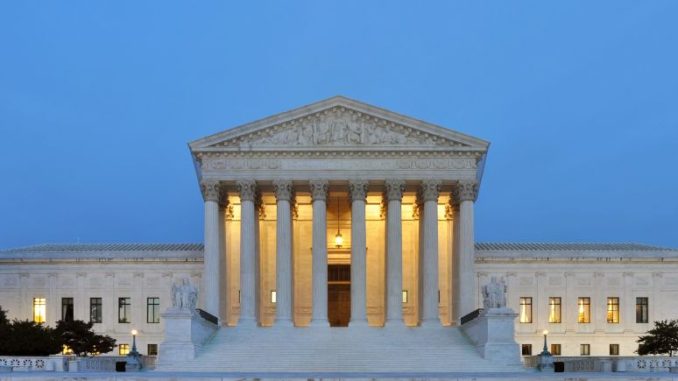
On Monday, the Supreme Court decided, on a 5-4 vote, a very specific ruling:
Held: Congress has instructed in the Arbitration Act that arbitration agreements providing for individualized proceedings must be enforced, and neither the Arbitration Act’s saving clause nor the NLRA suggests otherwise.
As with most Supreme Court decisions, both sides of the argument had a case based on legal precedent and established history. The conceit that law is typically obvious does not hold to even casual scrutiny, but it is how legal decisions are typically presented.
The fight was created by an official position reversal by the National Labor Relations Board in 2012. Again, from the ruling:
Until recently, courts as well as the National Labor Relations Board’s general counsel agreed that such arbitration agreements are enforceable. In 2012, however, the Board ruled that the NLRA effectively nullifies the Arbitration Act in cases like these, and since then other courts have either agreed with or deferred to the Board’s position.
The Arbirtration Act referenced above is the Federal Arbitration Act, which was written and passed by Congress in 1925. It codifies that any agreement to arbitration is, in the words of the Act, “valid, irrevocable, and enforceable.”
The National Labor Relations Act, passed in 1935 gives employees “the right to self-organization, to form, join or assist labor organizations, to bargain collectively through representatives of their own choosing, and to engage in other concerted activities for the purposes of collective bargaining or other mutual aid or protection “
From the American Bar Association:
Notably, Section 7 protects both union activity and “other concerted activity for mutual aid and protection.” Stated differently, the NLRA protects employees’ exercise of their Section 7 rights independent of whether a union is involved.
So, because of the use of the word “other” (this is law, single words can shape a decision) the NLRB in 2012 was able to legally justify overriding the Arbitration Act to allow class action lawsuits against employers and negation of non-disclosure agreements.
That was a huge victory for lawyers who represent class-action lawsuits and a huge loss for businesses. It was also a victory for the aggrieved who, lacking enough evidence of abuse to win a court case on the merits, were now able to air their experiences in the public square. For that second reason, the Monday decision is being called potentially devastating for #MeToo. (Quartz)
Monday’s court decision reversed all of that.
Ultimately, the law has been returned to where it was prior to the NLRB policy shift of 2012. Arbitration is legal and an employer has the right to not hire an employee if they will not accede to arbitration in the event of a grievance. People keep their rights to sue for sexual harassment and abuse, but may be restricted to presenting evidence of it in a court of law (as opposed to attempting to exert pressure by swaying public opinion).
